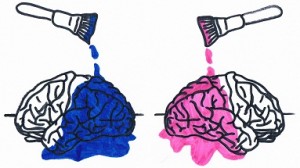In April of 2011, I presented my paper on “sex for health” at the Medicalization of Sex Conference at Simon Fraiser University in Vancouver. Afterward, I was interviewed by Meghan Murphy for The F Word media collective, a feminist media collective based in Vancouver. They produce a weekly syndicated radio show and blog. My interview was included in the first part of their documentary series on the medicalization of sex, which is available online for listening!
Here is a description of the first part of the documentary from the F Word and rabble.ca: “In this first part of a documentary series on the medicalization of sex, your host Meghan Murphy explores the way in which sex has been positioned in popular culture, in medical discourse and in the news media, as something that is not simply healthy at times, but as necessary in the maintenance of good health. How does this kind of discourse impact the way in which women view their own sexuality? How does it play into compulsory sexuality? Is sex necessarily ‘healthy’? This episode includes an edited version of a talk by Judy Segal, recorded at The Medicalization of Sex conference in Vancouver, B.C. on April 29, 2011 called: The (Re)Sexualization of the Medical as well as an interview with Kristina Gupta, who presented a paper at the conference entitled: Sex for Health: Representations of Sex as a Health-Promoting Activity. Referenced several times during this documentary is Thea Cacchioni’s paper: Heterosexuality and ‘the Labour of Love’: A Contribution to Recent Debates on Female Sexual Dysfunction and her concept of ‘sex work.'”



